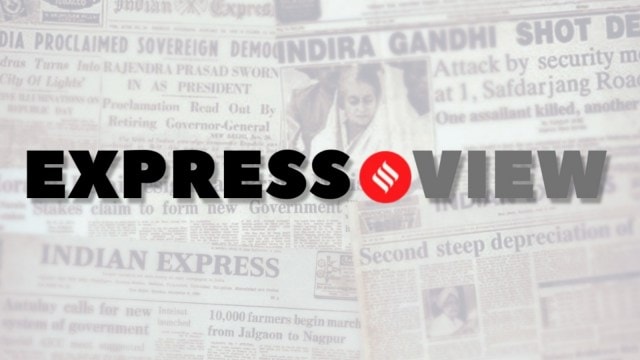
A body meant to function as a collegial institution has been reduced to a “one-man show”, with no official appointments since 2017, no meetings since 2019, long delays in certification and demands for arbitrary cuts. As reported in this newspaper, all is not well at the Central Board of Film Certification (CBFC). What should have been a panel of voices and perspectives appears to have become a personal fiefdom, with the result that the CBFC may no longer have the autonomy and diversity of views required for credible functioning. Instead, authority seems to have been centralised in lyricist Prasoon Joshi, who was appointed chairperson of the 12-person body in August 2017, with many within the CBFC questioning the “super-censorship raj” run by a handful of functionaries selected by the chairperson.
Exacerbating the situation is the question mark hanging over the legal status of the present board — its tenure was to have ended in 2020 — and repeated instances of overreach into censorship. Homebound, India’s official selection for the Academy Awards this year and which won a People’s Choice Award at the Toronto International Film Festival earlier this month, was reportedly “destroyed in parts” by the CBFC, which asked for several caste references to be cut out. Films in India have long had to contend with a scissor-happy CBFC — which is tasked with certifying films for release — but what makes the current state of affairs worse is the limited scope for redressal. Until 2021, filmmakers could appeal to the Film Certification Appellate Tribunal (FCAT) in case they disagreed with the certificate issued by the CBFC or it was denied altogether. This was how, for example, the 2016 film Lipstick Under My Burkha, which had been denied certification by the CBFC over being “lady-oriented”, finally made it to the theatres with an ‘A’ certificate. Since the abolition of FCAT in 2021, however, filmmakers without the resources to approach a high court — now the only forum for redressal — have had little choice, as the case of several recent films like Dhadak 2, The Bengal Files and Janaki V. Vs. State of Kerala shows. They can either comply with the CBFC’s demand for arbitrary cuts, or indefinitely delay the release of films — as has happened to Honey Trehan’s film on the life of activist Jaswant Singh Khalra.
Institutions matter because they embody processes larger than individuals. They are meant to outlast chairs, governments, and fashions. The diminishing of the CBFC and the capriciousness with which it functions harm Indian cinema at a time when its cultural resonance and global reach have never been greater. From international festivals to streaming platforms, Indian films are a crucial element of the country’s soft power, as seen when India was chosen as the Country of Honour at the Marche du Cinema at the 2022 Cannes film festival. When a film’s artistic vision is scrubbed and sanitised, it has a chilling effect. And if filmmakers find themselves second-guessing their scripts, trimming their creative choices, or shelving bold ideas for fear of an arbitrary cut or ban, the loss is not merely theirs.